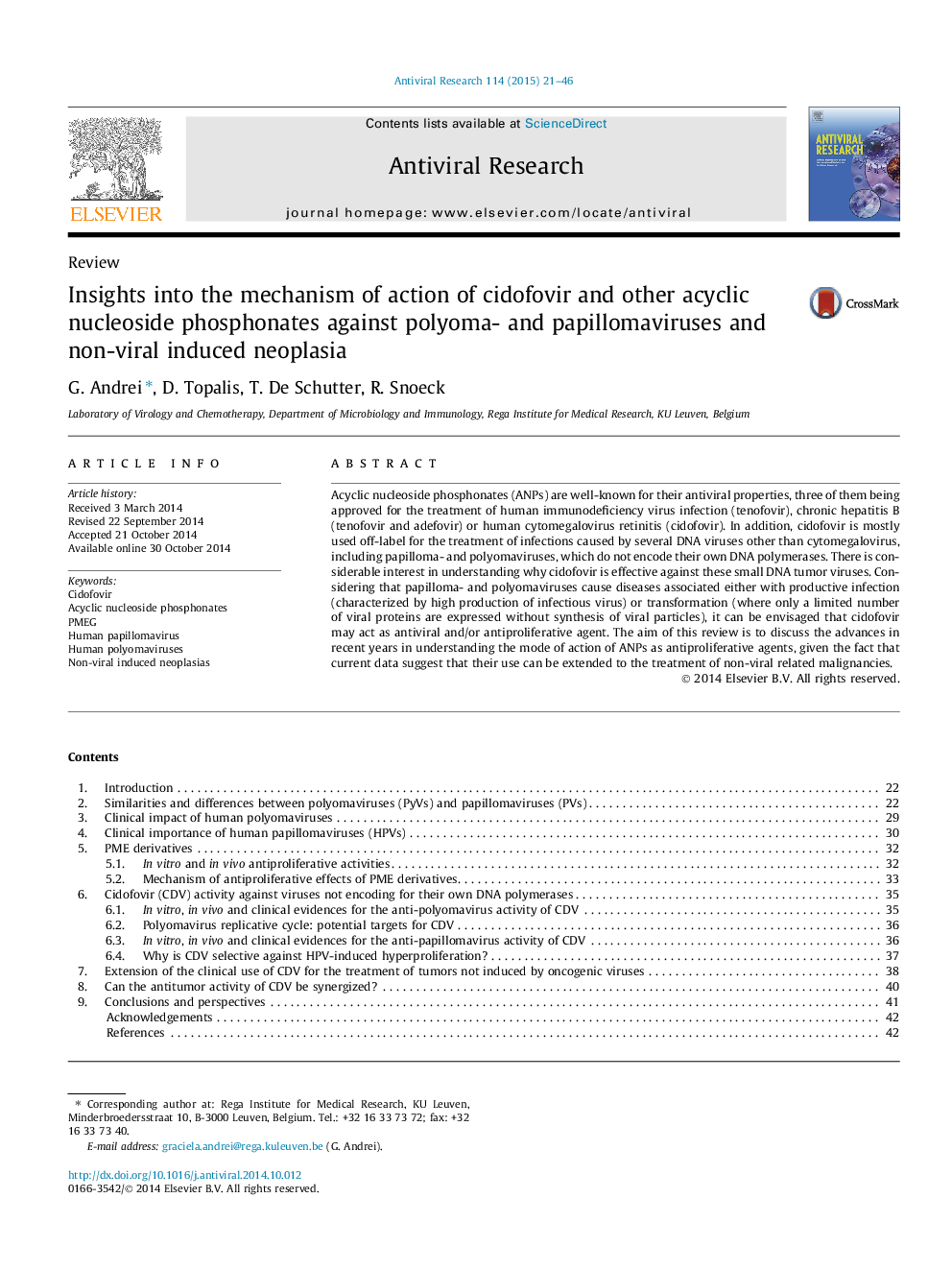| کد مقاله | کد نشریه | سال انتشار | مقاله انگلیسی | نسخه تمام متن |
|---|---|---|---|---|
| 5822028 | 1557829 | 2015 | 26 صفحه PDF | دانلود رایگان |
- Besides their antiviral properties, some acyclic nucleoside phosphonates also possess antiproliferative effects.
- Cidofovir is used off-label to treat infections by polyoma- and papillomaviruses that do not encode their own polymerases.
- A puzzling question has been unravelling the target of action of cidofovir against polyoma- and papillomaviruses.
- The use of cidofovir as an antitumor agent may be extended to tumors of non-viral origin.
Acyclic nucleoside phosphonates (ANPs) are well-known for their antiviral properties, three of them being approved for the treatment of human immunodeficiency virus infection (tenofovir), chronic hepatitis B (tenofovir and adefovir) or human cytomegalovirus retinitis (cidofovir). In addition, cidofovir is mostly used off-label for the treatment of infections caused by several DNA viruses other than cytomegalovirus, including papilloma- and polyomaviruses, which do not encode their own DNA polymerases. There is considerable interest in understanding why cidofovir is effective against these small DNA tumor viruses. Considering that papilloma- and polyomaviruses cause diseases associated either with productive infection (characterized by high production of infectious virus) or transformation (where only a limited number of viral proteins are expressed without synthesis of viral particles), it can be envisaged that cidofovir may act as antiviral and/or antiproliferative agent. The aim of this review is to discuss the advances in recent years in understanding the mode of action of ANPs as antiproliferative agents, given the fact that current data suggest that their use can be extended to the treatment of non-viral related malignancies.
Journal: Antiviral Research - Volume 114, February 2015, Pages 21-46
